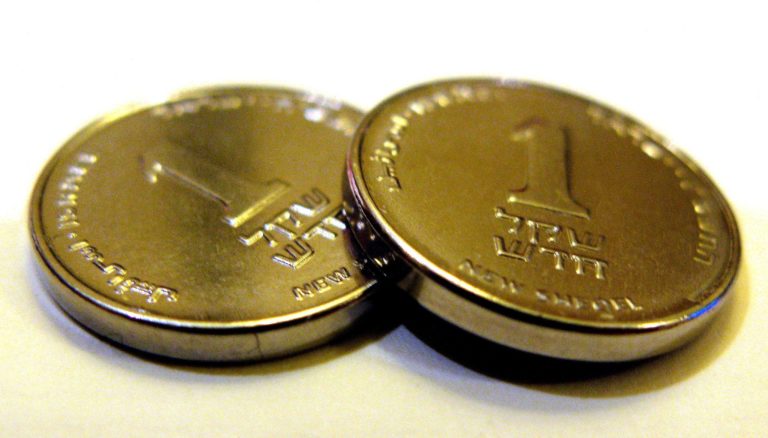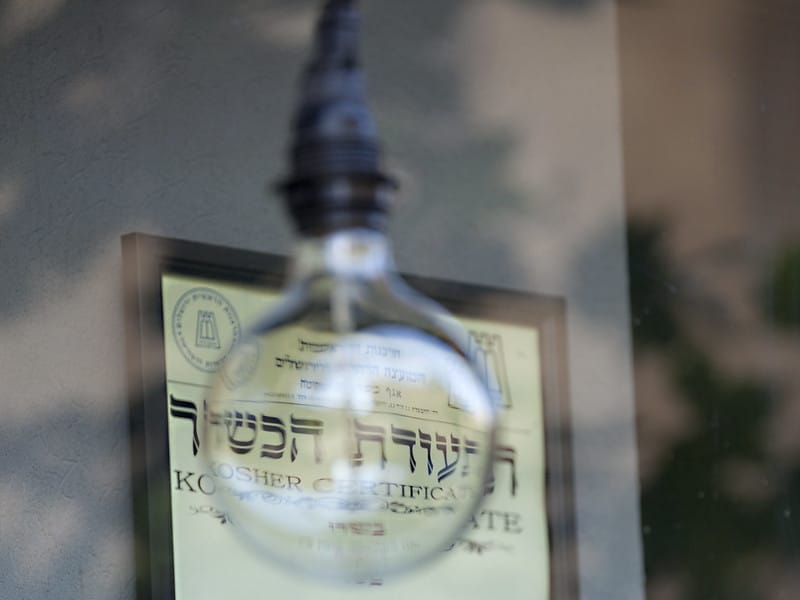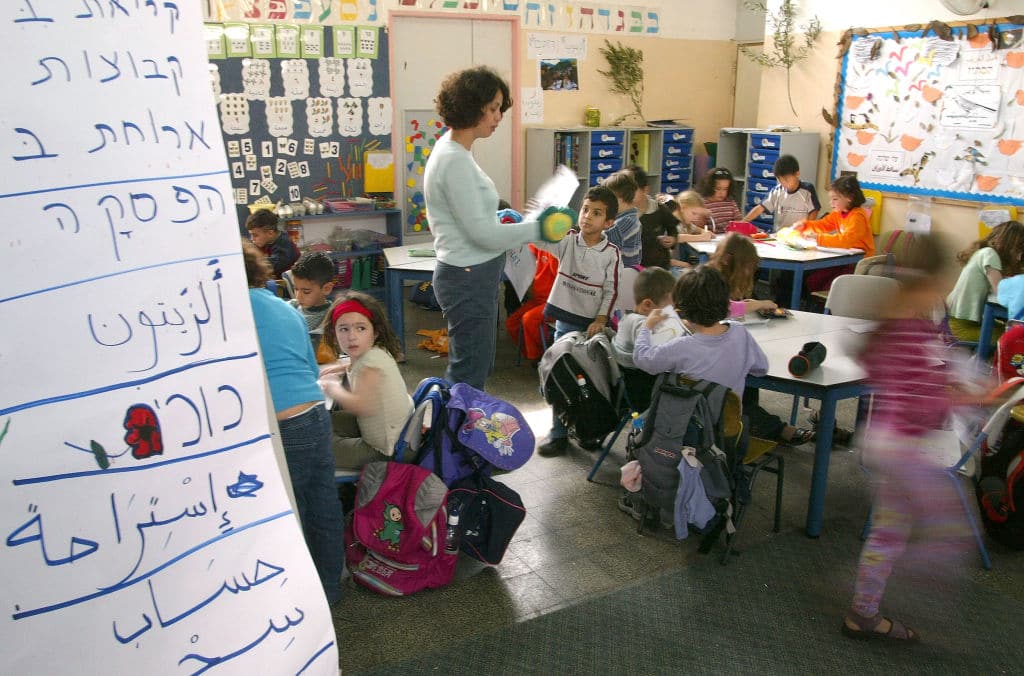
This is not your typical boring budget story (we promise). If you gave us access to your spending we would get a pretty good idea as to who you are, much the same can be said when it comes to unpacking a country’s budget.
That’s because how a country spends its money is a good idea of where its priorities are (Tel Aviv is getting a subway??), and with the announcement of Israel’s first budget in 3 years finally passing we’re curious if crunching the numbers could give us a better idea of where the country is heading (spoiler: major kashrut reform is coming and perhaps even war with Iran?).
But first, passing this budget was no easy feat.
“It looked like mission impossible,” Nachman Shai, the minister of diaspora affairs, said in an interview after the budget passed.
That’s because on top of setting the spending agenda for the Jewish state, the passage of the budget was a major victory for the fragile coalition government (i.e. Arab parties secured billions in funding). Many experts believed that Prime Minister Naftali Bennett’s government would not be able to get a budget to pass in the Knesset and the following chaos would lead to new elections.
“These reforms express the vision that underlies the entire economic plan of the State of Israel, for without a vision, a nation loses restraint,” Finance Minister Avigdor Liberman said, quoting from the Book of Proverbs.
So which reforms and priorities did the ruling coalition push forward? Also, what does this mean for those of us in the Diaspora? (Hint: the Israeli government expects a sharp rise in antisemitism in the United States and is budgeting accordingly for it.)
Kashrut reform

Let’s look at what the budget includes. You know you are talking about Israel’s budget when there are sweeping reforms of the kosher certification industry.
The approval was slammed by Israel’s Chief Rabbinate, who up to now controlled kashrut in the country. And in the general public, the reaction has been divided along political lines, with the right expressing concern for the change and the left framing the change as a needed economic move.
“This is a dark day,” United Torah Judaism MK Uri Maklev said. “Kosher consumers will have no trust or confidence in kosher certification… We are now just beginning the war… We will reach every child in this country to inform him that your kashrut is a total fake.”
The major change coming is that the budget calls for the establishment of local private kosher certification agencies that will be required to uphold religious standards established by the Chief Rabbinate. The move is intended to increase competition and decrease alleged corruption in the system.
“We’ve led a revolution,” Yulia Malinovsky, who heads the Knesset committee that approved the reform bill that was attached to the budget, said. “We … will streamline the kashrut system in Israel, reduce costs, lower the cost of living and do good for business owners who have until now paid a high price for a kashrut certificate.”
Spending for Arab communities

Arab communities in Israel will receive NIS 30 billion ($9.6 billion) for community and infrastructure improvements over the next five years. This makes good on a promise Bennett made to Mansour Abbas, a key coalition partner and leader of the Islamist Ra’am party.
“There is a new agenda for Israel and Arab society,” Abbas said at a news conference. “We are taking responsibility and initiative.” Abbas also took credit for changing the landscape of Israeli politics forever, saying that the budget shows from now on it will be natural that Arab parties will be in governing coalitions.
Separately, the budget also includes spending to fight crime ($804 million) and increase access to health care in Arab communities. Hundreds of millions of dollars will also be spent on programs that include Hebrew language immersion, integrating Arab citizens into the technology sector and unemployment counseling.
(For more in-depth reading on Bennett’s Arab initiatives check out our previous coverage on this topic.)
Diaspora relations

The budget for Diaspora relations was doubled in the new budget, highlighting the sense of urgency the government is trying to build when it comes to reaching out to Jews outside of Israel.
“We anticipate a drastic rise in antisemitism, manifestations of extremism among American Jews and knowledge gaps in relation to Israel,” Diaspora Affairs Minister Nachman Shai told The Jerusalem Post in August when the budget for his department was announced.
“All of these are a warning light that must not be ignored. We will lay out long-term infrastructure plans in Israel and in the Diaspora to correct the problems and to deal with the challenges that will arrive on our doorstep.”
Military spending

The approval of the first budget in three years has members of the IDF breathing a sigh of relief. According to the Jerusalem Post:
[W]ithout a budget for the past three years, Israel’s military was unable to adequately stock up on munitions, carry out key defensive projects, or even upgrade basic infrastructure at bases around the country.”
The IDF saw a modest 12% increase of its budget for 2022, bringing it to NIS 58 billion ($18.6 billion). Defense Minister Benny Gantz said the increase was needed because the lack of a budget all these years “has to a certain extent damaged our ability to act, and our ability to have efficient communication and build up our forces in a more effective way.”
Israeli media also speculated that the increase in the military spending was due to the country preparing for a possible upcoming war with Iran.
Buried in the details

Buried in the details of the budget are a few other interesting items and reforms.
- The budget sets the groundwork for converting Tel Aviv’s light rail system into a subway. The item is part of a NIS 35 billion ($11.3 billion) national investment in mass transit — a figure that is double that of previous budgets.
- The budget calls for reforms of the nation’s import taxes, a move that is expected to save Israelis an estimated NIS 8 billion ($2.6 billion) per year. This measure will eliminate the need for items authorized for use in developed countries to be inspected again by authorities in Israel.
- Israelis will be paying more for takeout food in Israel if they opt for a non-eco friendly container. The budget calls for steep taxes on disposable plasticware. It’s all part of a huge green initiative Israel’s government is pushing forward which includes supplements for the renewable energy industry.
- The startup nation is doubling down on future tech. The budget calls for a “national artificial intelligence plan” which will encourage the development of new technologies.
On top of this, there are also major banking reforms, an increase in wages and the retirement age, a national housing initiative, and reforms to the agricultural industry. “It is the most social budget in the history of the country,” Finance Minister Avigdor Liberman said.
The bottom line
On top of Israel having its first budget in 3.5 years, the vote was also a major victory for Bennett’s coalition, which includes eight political parties (including right-wing, centrist and left-wing parties and an Islamist party). A lot of questions still remain — for example, will the spending actually happen as planned?
Originally Published Nov 15, 2021 10:25PM EST


